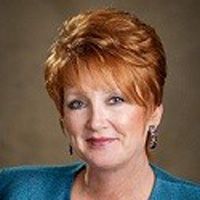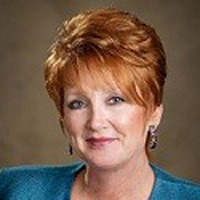To Make the Most of Your 401(k), Hire an Adviser Right Now
Your 401(k) may be your biggest retirement asset, yet chances are you’re not really managing it. More companies are letting their employees hire professional help to actively manage their money with a self-directed brokerage account.


Profit and prosper with the best of Kiplinger's advice on investing, taxes, retirement, personal finance and much more. Delivered daily. Enter your email in the box and click Sign Me Up.
You are now subscribed
Your newsletter sign-up was successful
Want to add more newsletters?

Delivered daily
Kiplinger Today
Profit and prosper with the best of Kiplinger's advice on investing, taxes, retirement, personal finance and much more delivered daily. Smart money moves start here.

Sent five days a week
Kiplinger A Step Ahead
Get practical help to make better financial decisions in your everyday life, from spending to savings on top deals.

Delivered daily
Kiplinger Closing Bell
Get today's biggest financial and investing headlines delivered to your inbox every day the U.S. stock market is open.

Sent twice a week
Kiplinger Adviser Intel
Financial pros across the country share best practices and fresh tactics to preserve and grow your wealth.

Delivered weekly
Kiplinger Tax Tips
Trim your federal and state tax bills with practical tax-planning and tax-cutting strategies.

Sent twice a week
Kiplinger Retirement Tips
Your twice-a-week guide to planning and enjoying a financially secure and richly rewarding retirement

Sent bimonthly.
Kiplinger Adviser Angle
Insights for advisers, wealth managers and other financial professionals.

Sent twice a week
Kiplinger Investing Weekly
Your twice-a-week roundup of promising stocks, funds, companies and industries you should consider, ones you should avoid, and why.

Sent weekly for six weeks
Kiplinger Invest for Retirement
Your step-by-step six-part series on how to invest for retirement, from devising a successful strategy to exactly which investments to choose.
Employer-sponsored 401(k) plans provide employees with the opportunity to contribute to their retirement account, access tax benefits and receive matching contributions from the employer. Usually, employers offer a list of investment options that the employee can choose from, but the employee cannot make choices outside of that menu. But many employees are falling short in fully understanding the structure of their 401(k) plans. They are suffering from information overload, and many participants are wishing for more direction or a “do it for me” option, according to a recent J.P. Morgan 2021 Defined Contribution Survey.
Managing your 401(k) account can be time consuming and intimidating for many people. They are busy doing their jobs and tending to family and simply do not have the time or expertise to manage their accounts. Luckily, an increasing number of American employers (40%) are now offering employees the option to open a “self-directed brokerage account” (SDBA) within their 401(k) as an alternative to only investing in the company-selected plan menu.
Depending on how the employer sets it up, an SDBA may allow the employee to hire a third-party investment adviser to manage their retirement plan account. This allows the employee to select investments that are outside of the limited plan menu, many times even allowing for the buying and selling of individual stocks, either on their own or with the assistance of their chosen investment adviser. Also, depending on how the employer sets it up, the investment adviser’s fee can come directly out of the employee’s 401(k) plan account, just like the typical investment and management fees that automatically come out of employees’ 401(k) accounts currently.
From just $107.88 $24.99 for Kiplinger Personal Finance
Become a smarter, better informed investor. Subscribe from just $107.88 $24.99, plus get up to 4 Special Issues

Sign up for Kiplinger’s Free Newsletters
Profit and prosper with the best of expert advice on investing, taxes, retirement, personal finance and more - straight to your e-mail.
Profit and prosper with the best of expert advice - straight to your e-mail.
If your 401(k) plan is falling short for any of the aforementioned reasons, and your employer offers an SDBA, seeking an adviser might be the right path for you. With an adviser, you may be better positioned to optimize your retirement plan and fulfill your overall financial goals.
Why Should You Hire an Adviser?
In a Harris poll, 44% of Americans without financial advisers are now reconsidering engaging them after the devastating 2020 events. The impact of the current pandemic might have influenced more Americans to re-evaluate their financial wellness, and a financial adviser would be one of the best assets to have going forward.
With this outlook, an SDBA adviser can focus on enhancing your investment strategies to meet your long-term goals. Through their experience and knowledge, they will help you build your personalized retirement wealth plan as you pursue your own career goals.
This way, you have your own professional working for you, applying the knowledge that they have acquired over their careers, to benefit you.
When Is It the Right Time to Hire an Independent Adviser?
As your income levels rise, there is more need for informed investment decision-making. The wider range of investment choices that an SDBA offers means you can invest in multiple sectors, such as financial services, technology or energy. Maybe you want to participate in the growing industry of 5G or block chain technology. Since there is more to navigate, unless you are a very experienced investor, it is only prudent that you hire an experienced adviser to better manage your portfolio.
It is important to first identify if your 401(k) plan offers an SDBA and what are the terms. Does it open the investing choices up to a wider menu of mutual funds, but still limited, or does it open the investment choices further so that you can buy a broader range of mutual funds, or ETFs, or stocks and bonds? Does it allow you to hire your own adviser, and does it allow your adviser’s fee to be paid out of your account? Your chosen adviser can assist you in answering these questions.
The gaining popularity of the SDBA option does expose investors to more issues compared to the limited company-chosen menu of investments. One among them is having a more diversified range of investment options, which can be confusing. But having that choice is the purpose of the SDBA, and you can “outsource” the confusion and concerns to your adviser.
The original reason for having an SDBA option was for the do-it-yourself investor, but it has turned out to be a great vehicle to allow an employee to get a more customized plan and have someone else manage it for them.
Moving Forward
While an employee-managed 401(k) can be a good investment tool for some people, hiring an independent adviser is the best choice for those who want tailor-made investment choices or more aggressive financial options but don't have the time and energy to commit to the process.
Securities offered through Mid Atlantic Capital Corporation (MACC). Member FINRA/SIPC. Investment advice offered through GWM Advisors LLC DBA Goss Advisors, a registered investment adviser. Goss Advisors and the Pastor Financial Group are affiliated entities to MACC and under common control of NewEdge Capital Group LLC.
Any opinions expressed in this article are those of the author and do not necessarily represent the opinions of GWM Advisors LLC, Mid Atlantic Capital Corporation, or the NewEdge Capital Group LLC. The information provided herein is for informational and educational purposes only and is not meant to be a solicitation for a specific security or service.
Profit and prosper with the best of Kiplinger's advice on investing, taxes, retirement, personal finance and much more. Delivered daily. Enter your email in the box and click Sign Me Up.

Renée Pastor is Founder & Wealth Manager at The Pastor Financial Group, a comprehensive financial planning and wealth management practice headquartered in New Orleans. The firm specializes in retirement planning and 401(k) management for families and individuals nationwide. To learn more, please visit thepastorgroup.com.
-
 Ask the Tax Editor: Federal Income Tax Deductions
Ask the Tax Editor: Federal Income Tax DeductionsAsk the Editor In this week's Ask the Editor Q&A, Joy Taylor answers questions on federal income tax deductions
-
 States With No-Fault Car Insurance Laws (and How No-Fault Car Insurance Works)
States With No-Fault Car Insurance Laws (and How No-Fault Car Insurance Works)A breakdown of the confusing rules around no-fault car insurance in every state where it exists.
-
 7 Frugal Habits to Keep Even When You're Rich
7 Frugal Habits to Keep Even When You're RichSome frugal habits are worth it, no matter what tax bracket you're in.
-
 For the 2% Club, the Guardrails Approach and the 4% Rule Do Not Work: Here's What Works Instead
For the 2% Club, the Guardrails Approach and the 4% Rule Do Not Work: Here's What Works InsteadFor retirees with a pension, traditional withdrawal rules could be too restrictive. You need a tailored income plan that is much more flexible and realistic.
-
 Retiring Next Year? Now Is the Time to Start Designing What Your Retirement Will Look Like
Retiring Next Year? Now Is the Time to Start Designing What Your Retirement Will Look LikeThis is when you should be shifting your focus from growing your portfolio to designing an income and tax strategy that aligns your resources with your purpose.
-
 I'm a Financial Planner: This Layered Approach for Your Retirement Money Can Help Lower Your Stress
I'm a Financial Planner: This Layered Approach for Your Retirement Money Can Help Lower Your StressTo be confident about retirement, consider building a safety net by dividing assets into distinct layers and establishing a regular review process. Here's how.
-
 The 4 Estate Planning Documents Every High-Net-Worth Family Needs (Not Just a Will)
The 4 Estate Planning Documents Every High-Net-Worth Family Needs (Not Just a Will)The key to successful estate planning for HNW families isn't just drafting these four documents, but ensuring they're current and immediately accessible.
-
 Love and Legacy: What Couples Rarely Talk About (But Should)
Love and Legacy: What Couples Rarely Talk About (But Should)Couples who talk openly about finances, including estate planning, are more likely to head into retirement joyfully. How can you get the conversation going?
-
 How to Get the Fair Value for Your Shares When You Are in the Minority Vote on a Sale of Substantially All Corporate Assets
How to Get the Fair Value for Your Shares When You Are in the Minority Vote on a Sale of Substantially All Corporate AssetsWhen a sale of substantially all corporate assets is approved by majority vote, shareholders on the losing side of the vote should understand their rights.
-
 How to Add a Pet Trust to Your Estate Plan: Don't Leave Your Best Friend to Chance
How to Add a Pet Trust to Your Estate Plan: Don't Leave Your Best Friend to ChanceAdding a pet trust to your estate plan can ensure your pets are properly looked after when you're no longer able to care for them. This is how to go about it.
-
 Want to Avoid Leaving Chaos in Your Wake? Don't Leave Behind an Outdated Estate Plan
Want to Avoid Leaving Chaos in Your Wake? Don't Leave Behind an Outdated Estate PlanAn outdated or incomplete estate plan could cause confusion for those handling your affairs at a difficult time. This guide highlights what to update and when.